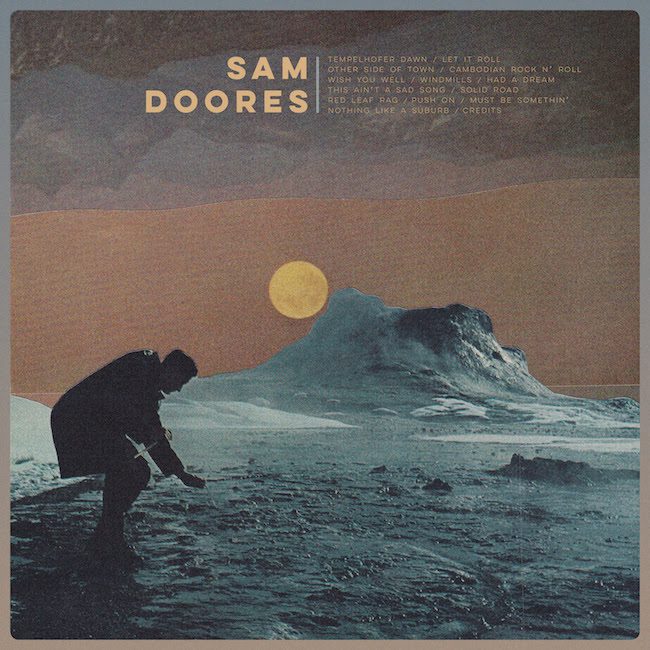The Deslondes’ Sam Doores Makes Audacious Solo Debut

With his self-titled solo debut, Sam Doores, formerly of The Deslondes and Hurray for the Riff Raff, offers hooky melodies and evocative soundscapes, reconfiguring approaches associated with a wide array of genres, including big band, jazz, and traditional country. In terms of production, spearheaded by Anders “Ormen” Christopherson, the album occasionally brings to mind Daniel Lanois’ touch on Bob Dylan’s Time Out of Mind, heritage content transformed into crossroads material, a sound at once accessible and otherworldly.
The languorous “Let It Roll” blends lo-fi casualness with a tip of the hat to early Motown (The Marvelettes, The Supremes). Particularly effective is the paradoxical blend of a quasi-dream-pop soundscape and Doores’ country-inflected voice. “Other Side of Town” further employs this approach, Doores’ voice mixing well with that of his ex-bandmate Alynda Segarra. “Cambodian Rock N’ Roll” is an atmospheric and hummable ditty; Barnabus Jones’ trombone solo midway through the song is an unexpected and virtuosic stroke.
“Windmills” opens with a fingerpicked guitar and swelling harmonica. One can almost feel the warmth of the campfire. “Just watching the windmills turn / seeing them spinning as they stand / working all day for another man,” Doores sings, tapping into a blue-collar-classic-country ethos. “The bottle he ain’t kind / no he don’t call no man friend,” he continues, pivoting into Townes Van Zandt territory, “he’ll keep you warm just to burn you in the end.” On “This Ain’t a Sad Song,” Doores strikes a fine balance between drawl (Todd Snider) and neo-croon (Jim Morrison). “Solid Road” is a moody and textural piece that benefits from a mélange of instrumental flourishes, Doores expressing his appreciation for the carnivalesque à la Tom Waits.
“Must Be Somethin’” taps into a ’30s/’40s Broadway/showtune vibe, replete with subtle allusions to Duke Ellington, The Benny Goodman Band, The Glenn Miller Orchestra, et al., sources that Dylan mined to good results on 2001’s Love and Theft. “Nothing Like a Suburb” is a waltz-y/polka-ish tune that impressively sounds au courant, due primarily to its lo-fi and tongue-in-cheek tone. Sublime violin parts courtesy of Mia Bodet and Manon Parent add additional texture and range to the sonic mix. The album closes with “Chicago to Illinois,” a deceptively simple and catchy tune that could easily be playlisted alongside tracks by such diverse artists as Elvis circa 1956, post-Rubber Soul Beatles, Yankee Hotel Foxtrot-era Wilco, and The Alabama Shakes.
Sam Doores navigates and makes fertile use of myriad sources, demonstrating an encyclopedic familiarity with the American songbook and popular canon — an ambitious yet seemingly humble collagist whose final product exceeds and transcends its parts. This is an adventurous, eclectic, and cohesive debut from an artist who will undoubtedly continue to refine, define, and expand his palette.


